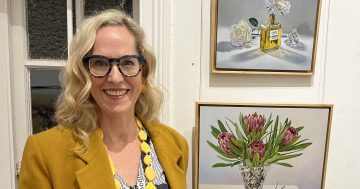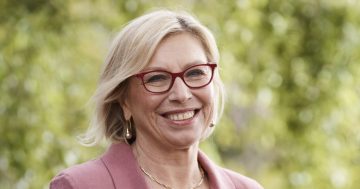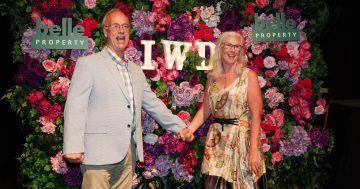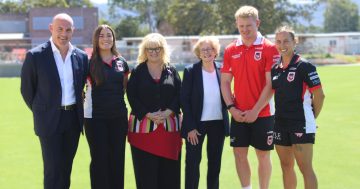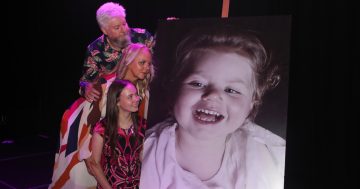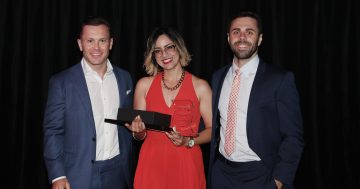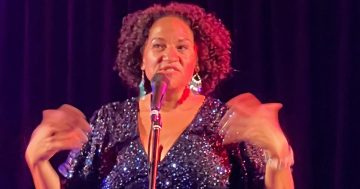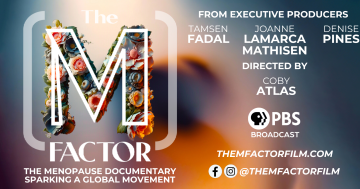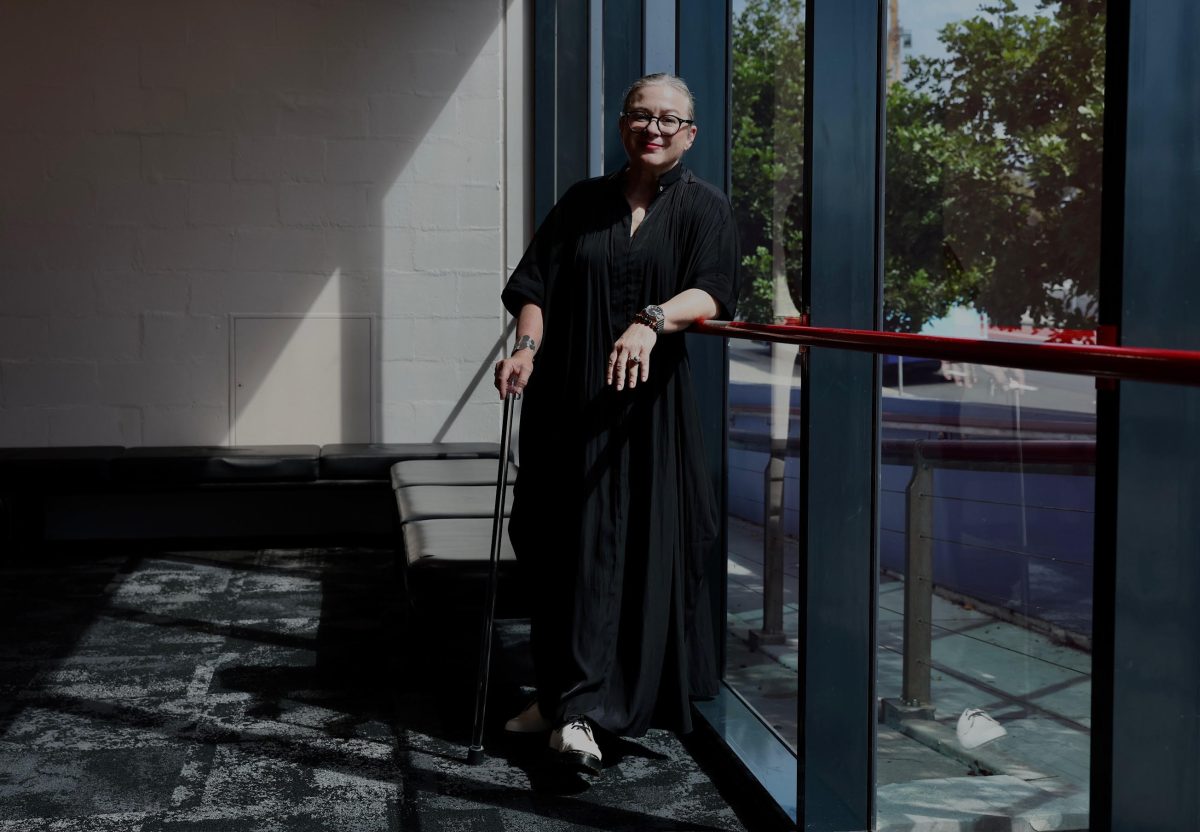
Dr Gill Hicks was the keynote speaker at the 2024 International Women’s Day Illawarra Luncheon. Photo: International Women’s Day Illawarra Committee.
When Dr Gill Hicks was admitted to a London hospital in 2005 she was given an ID tag that read “one unknown, estimated female”.
The last living victim rescued from the London Underground terrorist bombings, Dr Hicks said that ID tag encapsulated what it meant to be human.
“Those rescuers put their lives at risk to save mine,” she said.
“They didn’t know anything about who I was, and nothing mattered to them, except that I was a human being.”
Dr Hicks spoke at the 19th International Women’s Day (IWD) Illawarra Luncheon.
This year’s IWD theme is ‘Count Her In’.
Following the release of data last week showing dozens of Australian companies have gender pay gaps of more than 50 per cent, by the government’s Workplace Gender Equality Agency, Dr Hicks said it was a timely reminder that we are far from equality.
“As professional women we have an understanding there’s some sort of inequality, but to see it laid bare in 2024 is shocking,” she said.
“I’m a mother of a daughter and certainly don’t want her to work in a world where she isn’t paid the equivalent of a man doing the same job.
“We have got to value ourselves, value our role at the table, and have that value recognised through equal pay.”
Judith Henderson, patron and co-founder of IWD Illawarra Committee, agrees.
Judith has been a national and international champion of women’s rights for decades, and says despite claims of equality, women have lost ground.
“Our rights have been gradually eroded,” she said.
“We are still fighting to be equal. We are entitled to equal pay for equal work, and where is that?
“Men and women need one another to sustain humanity; we are equals because we cannot do it without each other, so how do we implement that equality in society?”
More than 900 people attended this year’s IWD Illawarra Luncheon, which also celebrated the recipients of eight IWD Illawarra scholarships.
Imogen Alton, Ellie Taylor, Elahe Minaei, Jessica Roppa, Sheree Rankmore, Isabella Coleman, Susan Kennedy and Delta Amidzovski will each receive $2500 to help them pursue their dreams across a range of arenas including sport, medical research, business and creative arts.
Started in 2009, the IWD Illawarra Scholarships are predominantly named in honour of inspirational Illawarra women who are no longer with us but who left their mark on the region in the fields in which they excelled.
Committee chairperson and co-founder Vicki Tiegs said it was wonderful to see the community come together to celebrate and acknowledge the achievements of women, but one day was not enough.
“We should talk about it every day and make change every day, but on this global date we need to look harder at the things we can do to build economic foundations for women, to count them in,” she said.
“The fastest-growing demographic of homeless people in Australia are women over 55, and that directly relates to the fact most of them have stepped out of work to start families.
“We know when women step away from work to have babies they are disadvantaged; they lose their super contributions, and their income drops.
“It was good to see the Federal Government come out and announce from 1 July 2025 they will contribute 12.5 per cent to women’s super when they’re on paid parental leave – 180,000 families will benefit from that.
“As employers, and I’m an employer, we need to create a flexible work environment if we want to keep talent.”
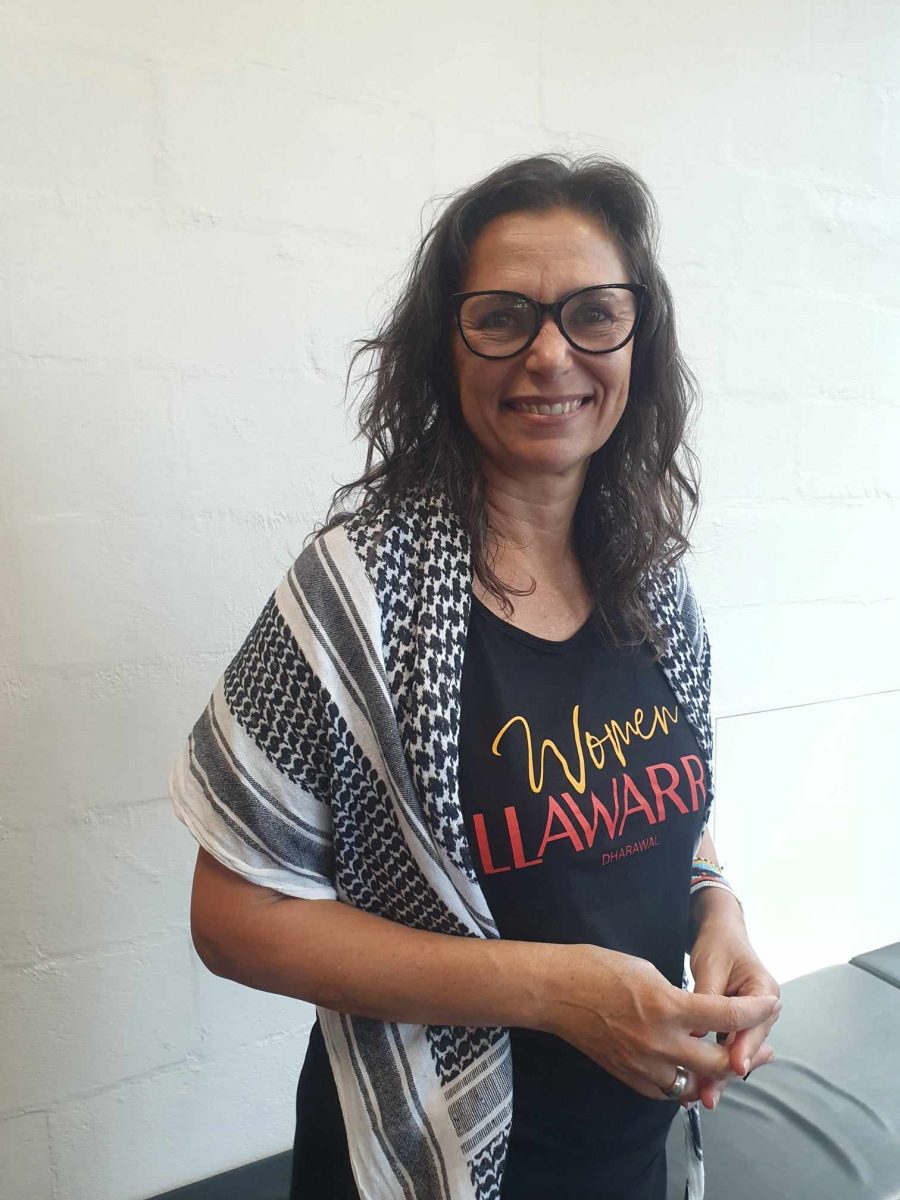
Women Illawarra community development officer Lillian Rodrigues-Pang, who has Palestinian heritage, wore her keffiyeh to the 2024 IWD Illawarra Luncheon as a visible reminder that all violence against women, from domestic violence to state violence, is unacceptable. Photo: Zoe Cartwright.
The International Women’s Day Illawarra Luncheon also raises funds for a major project each year.
This year’s beneficiary is Women Illawarra for its Mumung program, a Koori women’s song and language program focused on strengthening the voice of Koori women and their connection to Country.
Women Illawarra is an especially fitting recipient this year, as it marks its 45th anniversary on IWD.
Community development officer Lillian Rodrigues-Pang said the program was valuable because it combatted isolation – one of the cornerstones of abuse.
“If you look at the basic elements of domestic violence, isolation is the most problematic element,” she said.
“Shame is isolating, and to connect with people who allow you to speak your truth and support you in that is essential to women thriving.
“When women thrive our children and families thrive, our communities thrive.”
Lillian, who has Palestinian heritage, wore her keffiyeh to the luncheon to symbolise the connection of women worldwide.
“The problems in the world impact us here; we are not isolated,” she said.
“Domestic violence, state violence, institutional violence are all deeply connected.
“It’s not acceptable in our homes or in our community, whether that’s our local community, national community or international community.”









